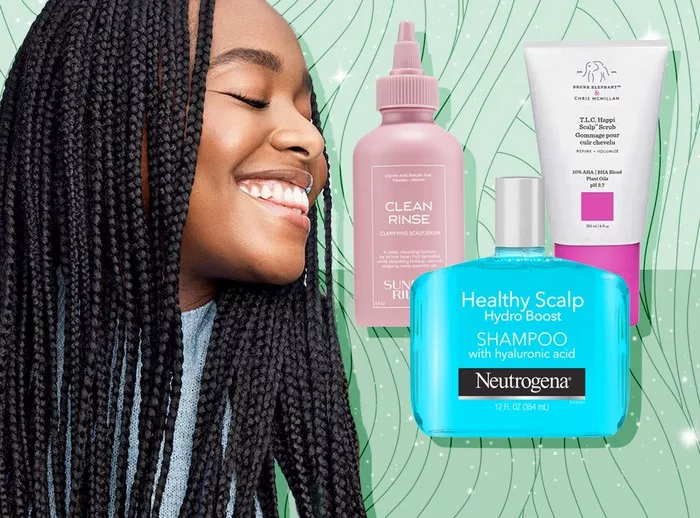Maintaining healthy and vibrant dreadlocks requires more than just routine washing and styling. Over time, locs can accumulate residue from products, environmental pollutants, and natural oils, leading to dullness, heaviness, and even scalp issues. Detoxing locs is an essential step in preserving their health and appearance. In this article, we will delve into the significance of detoxing, signs that indicate your locs need cleansing, recommended frequency, various detox methods, product recommendations, aftercare tips, and frequently asked questions to help you achieve optimal loc health.
Explanation of Detoxing Locs
Detoxing locs involves the removal of buildup, impurities, and residue that accumulate within the hair shaft and on the scalp. This process is crucial for maintaining healthy, clean, and vibrant dreadlocks. Regular detoxing promotes scalp health by unclogging hair follicles, allowing for proper airflow, and preventing issues like itching, flakiness, and odor. Additionally, detoxing helps restore the natural balance of oils in the scalp and hair, preventing excessive dryness or greasiness.
Signs That Detox is Needed
Several indicators suggest that it’s time to detox your locs:
1. Dullness: If your dreadlocks appear lackluster and lose their natural shine, it may indicate the presence of buildup or residue.
2. Heaviness: Buildup from products or environmental pollutants can weigh down your locs, making them feel heavy and stiff.
3. Itchiness: An itchy scalp is often a sign of product buildup, sweat accumulation, or even fungal growth, necessitating detoxification.
4. Visible Buildup: Inspect your locs closely for any white or grayish residue, which indicates the presence of buildup or residue that needs to be removed.
Frequency of Detox
The frequency of detoxing locs varies depending on factors such as hair type, lifestyle, and the products used. As a general guideline, it’s recommended to detox your locs every 4 to 6 weeks to maintain optimal cleanliness and scalp health. However, individuals with particularly oily hair or those exposed to environmental pollutants may benefit from more frequent detox sessions, while others with drier hair may detox less frequently, around every 8 weeks.
Detox Methods
There are various methods for detoxing dreadlocks, ranging from commercial products to natural remedies. Here are some effective methods:
1. Apple Cider Vinegar Rinse: Mix equal parts of water and raw apple cider vinegar, then pour the solution over your locs. Allow it to sit for 10-15 minutes before rinsing thoroughly with lukewarm water.
2. Baking Soda Soak: Create a paste using baking soda and water, then massage it into your damp locs. Let it sit for 10-15 minutes before rinsing thoroughly. Follow up with a moisturizing conditioner to prevent dryness.
3. Activated Charcoal Treatment: Mix activated charcoal powder with aloe vera gel or your favorite conditioner to create a detoxifying mask. Apply the mask to your locs, focusing on the roots and areas with buildup. Leave it on for 20-30 minutes before rinsing thoroughly.
4. Clarifying Shampoos: Use a clarifying shampoo specifically designed for dreadlocks to effectively remove buildup and impurities. Follow the instructions on the product label for best results.
Product Recommendations
When selecting products for detoxing locs, opt for gentle yet effective formulations that won’t strip the hair of its natural oils. Here are some recommendations:
1. Plant-Based Detox Powders: Look for detox powders formulated with natural ingredients like clays, herbs, and essential oils. These powders effectively cleanse the scalp and hair without harsh chemicals.
2. Clarifying Shampoos: Choose clarifying shampoos that are sulfate-free and formulated for dreadlocks. These shampoos remove buildup while nourishing the hair and scalp.
3. Apple Cider Vinegar: Invest in raw, unfiltered apple cider vinegar for an affordable and natural detox solution. Dilute it with water to create a rinse or mix it with other ingredients for a customized detox treatment.
Aftercare Tips
After detoxing your locs, it’s essential to follow up with proper aftercare to maintain moisture and prevent dryness or breakage. Here are some aftercare tips:
1. Moisturize: Apply a lightweight, water-based moisturizer or oil to your locs to replenish lost moisture and keep them hydrated.
2. Seal in Moisture: Use a natural oil like jojoba oil or argan oil to seal moisture into your locs. Focus on the ends to prevent split ends and breakage.
3. Avoid Over-Manipulation: Minimize excessive twisting, pulling, or styling of your locs, as this can cause stress and damage to the hair shaft.
4. Protective Styling: Consider wearing protective styles like buns or braids to minimize friction and prevent tangling while your locs recover from the detox process.
FAQs
Can I detox my locs if they are still in the maturing phase?
Yes, you can detox maturing locs, but be gentle to avoid disrupting the forming dreadlocks.
Will detoxing locs remove my hair’s natural oils?
While detoxing can remove excess oils and buildup, it should not strip your hair of its natural oils if followed by proper moisturizing and conditioning.
Can I use regular shampoo to detox my locs?
Regular shampoos may not effectively remove buildup from locs. It’s best to use clarifying shampoos specifically formulated for dreadlocks or opt for natural detox methods.
In conclusion, detoxing locs is a crucial aspect of dreadlock maintenance, promoting scalp health, and preserving the vitality of your hair. By recognizing the signs that indicate the need for detox, following a regular detoxing routine, exploring various detox methods and products, and adopting proper aftercare practices, you can ensure that your locs remain clean, healthy, and vibrant for years to come.


